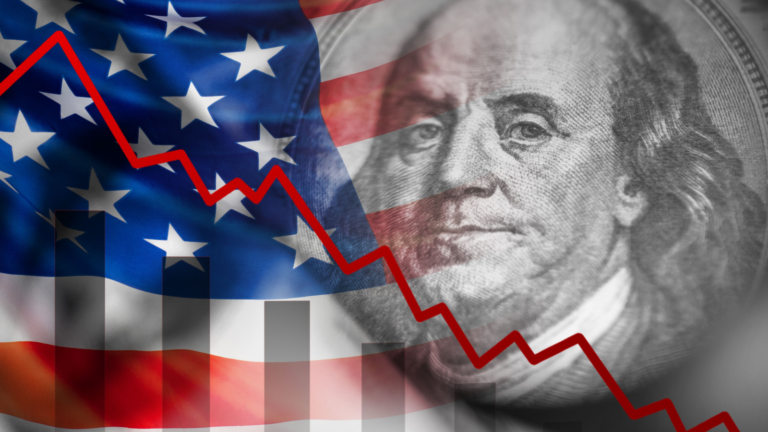Here we go yet again.
The federal government in Washington, D.C., is running up against another deadline to fund its operations or risk a government-wide shutdown ahead of the holidays. Congress currently has until midnight on Friday, Nov. 17, to come up with a plan to continue funding government operations on either a temporary or long-term basis.
This latest deadline approaches after a previous emergency funding measure reached in October pushed the government funding deadline back by 45 days to this coming Friday. As Nov. 17 nears, the stakes are high for all parties involved, as well as for markets.
More Credit Rating Woes
As both Republican and Democratic lawmakers scramble to avert a government shutdown, ratings agency Moody’s lowered its outlook on the credit rating of the U.S. to “negative” from “stable” previously. While the change in the outlook falls short of an actual downgrade to America’s credit rating, which Moody’s maintained at its highest level of “AAA,” it is considered another knock on the nation’s fiscal position.
In lowering the outlook on the U.S. credit rating to “negative,” Moody’s cited America’s deteriorating fiscal situation and increasingly polarized politics as long-term risks to the economy. The agency also noted threats posed by rising interest rates, mounting debt, and a gridlocked Congress that has been unable to agree on ways to reduce the federal budget deficit. The U.S. government ran a $2.02 trillion budget deficit for the fiscal year ended Sept. 30, which was nearly double the amount from a year ago.
Moody’s is not the only ratings agency to lower its outlook on the U.S. government. In August of this year, Fitch Ratings lowered its U.S. long-term credit rating to “AA+” from “AAA.” Fitch’s downgrade came two months after the U.S. narrowly avoided defaulting on its debt payments for the very first time, an event that would have caused a global financial shock and upended markets. Moody’s said it did not officially downgrade its U.S. credit rating because of America’s credit strength and the role of the dollar as the world’s reserve currency.
Two Wars and a (Possible) Recession
A potential government shutdown also looms as the U.S. tries to navigate two major wars now taking place in Europe and the Middle East and as data begins to show that the U.S. economy is slowing as high interest rates used to lower inflation take a toll. At the end of October, President Joe Biden had sought $105 billion in new aid from Congress to help both Israel and Ukraine with the wars they are embroiled in.
The Republican-controlled House of Representatives has passed a $14.3 billion aid bill to provide support to Israel. However, it is never going to pass the Senate as Democrats will not support it due to it being full of nonstarter proposals and just “stunningly unserious” as Senate leader Chuck Schumer put it. Where the funding legislation ultimately ends up now is not known. However, at the same time, economic data is showing a slowing U.S. economy. The latest jobs report was weaker than expected, and consumer spending declined in October.
Searching for Solutions
Over the weekend, recently appointed House Speaker Mike Johnson introduced a complex proposal to temporarily fund the government until January when the passage of permanent department budgets would occur. Analysts and commentators are criticizing Johnson’s proposal as overly complex. They also note the continued infighting among Republicans, with hardliners demanding massive spending cuts and more of a focus on reducing the budget deficit.
Johnson, who is new to the speaker’s role, has little time to find consensus among his Republican colleagues. With a slim majority in the House of Representatives, Johnson can only lose three votes and still pass his proposed legislation. However, with Democrats controlling the Senate and the White House, there’s no guarantee the legislation will pass by Nov. 17, even if Republicans manage to find some common ground amongst themselves.
What’s Next
Time is of the essence as Nov. 17 races towards lawmakers in Washington, D.C. Failure to pass the needed legislation and continue funding government operations will lead to a costly and difficult government shutdown right before the year-end holidays. With major wars raging around the world and the U.S. economy starting to show cracks in its foundation, now would be a terrible time for the American government to cease operations. Not to mention the fact that U.S. stocks have only just begun to rally after enduring three consecutive months of losses between August and the end of October.
On the date of publication, Joel Baglole did not have (either directly or indirectly) any positions in the securities mentioned in this article. The opinions expressed in this article are those of the writer, subject to the InvestorPlace.com Publishing Guidelines.

